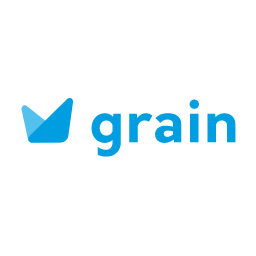Expenses can come fast and catch people by surprise. It’s easier to keep up with surprises if you have a job, but layoffs have impacted millions of workers. Even for employed workers, cash advances are a common source of funds when their bank accounts fall short.
Some families use cash advances to cover urgent expenses that can’t wait for the next paycheck. Car repairs, school supplies, rent hikes, and similar costs need immediate attention. Employees can quickly access a cash advance that matches their weekly pay, but not everyone has a job. Expenses won’t go away if you lose your job, and a cash advance would still come in handy.
Some people approach their friends and family members, but not everyone is open to that idea. Some banks may reject your application if you don’t have a job, but there is hope. If you need the extra cash but don’t have a job or proof of income, you can still get financing. We will explore some of the choices you have if you want a cash advance but do not have a job.
Ways to Borrow Money with No Job
No job and bad credit? No problem. That’s what some lenders will say to unemployed borrowers who submit loan applications. While you can get financial assistance, you should be cautious about most of these lenders. Some lenders offer notoriously high interest rates, especially payday loan providers. You should be careful, look at the loan terms, and review several choices before borrowing money. Loans can get expensive in a hurry if you rush into it.
Apply for a No Income Loan
A No Income Loan helps a member of an underserved community. Borrowers with no income frequently get rejected by most traditional lenders, but some lenders offer emergency loans with no job or income requirements. In addition, lenders let you choose between secured and unsecured loans. Secured loans are tied to collateral. If you miss enough loan payments, the lender gets the collateral. However, these loans are easier to obtain and may have more generous terms.
Unsecured loans do not require you to put up any collateral. While no collateral requirement reduces your risk, these financial products have higher interest rates. Lenders set higher interest rates on these loans to compensate for a higher risk level. Credit cards are a common example of an unsecured loan because you get to borrow money without losing assets if you fall behind on payments. The higher interest rate will make it more difficult to afford the loan, but not every borrower wants to risk collateral. You might receive payments from sources like unemployment benefits, child support, and workers’ comp that may make a secured loan feel more manageable. You might also get a lengthier loan term if you opt for a secured loan. A longer term means lower monthly payments, which makes the payments feel more manageable.
Apply for Social Security Benefits
If you are old enough and don’t have a job, taking out social security can provide a reliable safety net. Social Security provides monthly payouts to everyone in its program. You can apply for social security the moment you turn 62, but the program awards higher monthly payouts to people who wait. Even though you won’t get the higher payouts by receiving social security sooner, the monthly proceeds can provide a reliable stream of funds.
Collecting social security payments may be the smarter decision to stay on top of expenses. If you have enough leftover cash to cover living expenses, you can also use social security funds to grow your portfolio and generate cash flow. Of course, your payment increases if you start receiving Social Security at 70, but it’s a good idea to look at your finances to determine if it makes sense to take it out sooner.
Tips to Get a Loan or a Cash Advance with No Job
Not everyone qualifies for Social Security yet, and you may need funds quickly. Taking a proactive approach will help you secure a loan or a cash advance even if you have no job. While it can feel stressful to need a cash advance without having a job, it’s important not to let desperation guide your decisions. Following these strategies will increase the likelihood of receiving funds with reasonable terms even if you don’t have income.
Build Your Credit
Lenders don’t only look at your income. Financial institutions also check your credit score and other details before approving applications and setting the loan’s terms. Building your credit puts you in a better position and can compensate for low or no income. Many lenders have minimum credit score requirements, and even if you fulfill the minimum, it’s still beneficial to improve your score. Consumers with good credit can get lower interest rates and higher loan amounts.
Strengthening your payment history with on-time payments is one of the best ways to improve your credit. Of course, this is easier said than done if you don’t have a job. Using income sources and picking up a side hustle can help with expenses and your credit score.
Consumers without credit scores can consider getting started with a credit builder loan. These financial products aren’t the ideal options for people seeking money to cover expenses. Instead, these loans give you a great opportunity to improve your credit score. Providers will report every payment to the major credit bureaus, and your score will go up with every on-time payment. These types of loans offer a tremendous starting point for building credit. You can also reduce your credit utilization ratio by paying off existing debt and keeping old credit accounts open. Consumers can apply additional strategies to improve their credit, but sticking to these basics will go a long way in establishing a good credit score.
Know How Much You Need
The amount of cash you need for a loan makes a big difference in how you receive financing. Many mobile banking apps will give you a few hundred dollars at 0% APR if you have good deposit history. However, keeping the cash advances small limits how much you will owe through interest and other fees. In addition, some of these mobile banking apps won’t even run credit checks. Getting multiple apps may give you enough resources to borrow $1,000, but you may need a different type of loan for a more expensive emergency.
Take a Closer Look at Your Credit Card
A credit card isn’t the best resource for a cash advance. You instantly get charged a cash advance fee, and interest will start accruing right away. However, using your credit card to cover expenses can help you save money. The interest rate isn’t the best, but it’s better than a payday loan. You also have a chance to avoid interest payments if you repay the debt before the grace period ends.
While a credit card can provide a funding source, even if you don’t have a job, you should still monitor your credit limit. Your credit card can get declined if you exceed your credit limit, and the credit card issuer will charge additional fees. Getting too close to your credit limit will also hurt your credit score. It’s more difficult to keep a low credit card balance without as much income, but the grace period gives you time to find a short-term side hustle and apply for jobs. You may not get a job or side hustle right away, but the grace period can come in handy.
Consider a Line of Credit Instead of a Loan
Lines of credit are different from loans. They are easier to obtain and are similar to credit cards. You only pay interest when you borrow against a credit line, and you won’t have to make more than the minimum payment for a few years. A high interest rate can accelerate debt accumulation, but the structure of a line of credit is enticing for people without jobs. You don’t have to make large monthly payments right away and have more breathing room to find a long-term solution.
Ask a Family Member or Friend to Co-Sign the Loan
Joining forces with a co-signer puts more loans within reach. The lender will prioritize the cosigner’s credit score, income, and other details during the application process. So, even if you have no income and a bad credit score, a co-signer who is financially stable can help you get financing.
While it’s simple for the borrower, the co-signer places a lot of trust in the person who needs funds. If the borrower cannot repay the loan, the co-signer becomes legally responsible for the debt. Your family member or friend may have to make a few loan payments on your behalf if you don’t get a job. This dynamic can complicate strong relationships if you don’t remedy the situation quickly.
You should inform every potential co-signer about how you intend to repay the loan and strengthen your finances. Most co-signers won’t want to get involved if it means receiving none of the loan’s proceeds and paying off the entire debt.
Use Your Home as Collateral
If you are a homeowner, you can take out a home equity loan or line of credit to cover your expenses. These financial products let you borrow funds against the home equity you have built over time. Home equity grows with each monthly mortgage payment and as your property’s value increases. A home equity loan has higher monthly payments but a lower interest rate. You can minimize monthly payments with a HELOC, but interest will accumulate in your account.
Regardless of how you use your home as collateral, it’s a useful choice to consider if you need extra funds. You will have to fulfill credit score requirements, but it’s easier to borrow against your home without income than it is to get a traditional loan. Since your home is collateral, the lender incurs less risk for giving you capital.
Consider Using Your Retirement Account
This isn’t the best way to raise capital when you have no income and need to cover expenses. However, it may be the most viable option for some people. Drawing funds from your retirement account may result in fees, but you won’t have to worry about a loan’s interest rate.
This strategy may provide short-term relief, but it can create obstacles in retirement and increase how long you have to work. It can become especially dangerous if you rely on your retirement account and drain it to nothing. It’s a good idea to consider alternatives first, but knowing in the back of your mind that your retirement account may offer a temporary solution.
Compare Rates from Online Lenders
Most traditional banks don’t offer many options for borrowers with no income. Online lenders fill the gaps and provide a haven for consumers who feel neglected by financial institutions. You might get a loan with reasonable terms if you shop around, but you should avoid payday loans. Those are some of the most expensive loans, and title loans aren’t too far behind.
Some online lenders accommodate no income and have different ways to approve applications. More reasonable standards from online lenders can give you quicker access than banks to the capital you need. You also might get your funds much quicker. It can take over a week to receive a loan from a traditional bank, but some online lenders deliver funds within 24 hours. Just make sure you compare loan terms before committing to a lender. You can save a lot of money by reading the fine print.
Understand Where Your Money Goes to Save in the Future
Short-term loans provide temporary relief from financial stress. However, surprises will emerge and temporarily require a new approach to spending and saving. Unfortunately, many people revert to their old spending habits after the problem fades away. The emergency expense gets covered, and the consumer may feel comfortable with unwise money decisions.
Understanding where your money goes will help you generate long-term wealth. Monitoring your expenses will reveal opportunities to trim your costs. Lower costs will make you less reliant on loans and also help with investments.











